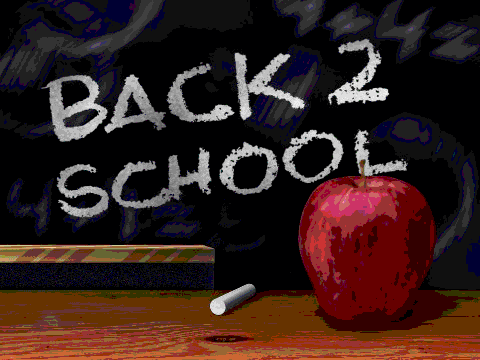Making Amends

When facing a new school year, many parents are looking for just the right advice so they and their child can have a great year. How many back-to-school tips and suggestions have you seen floating around the media and amongst your parent social groups? All the advice can put some heavy pressure on parents to do the “right” thing when it comes to their kids. There’s an underlying message sent to parents that if you don’t subscribe to the latest parenting trend or advice, you may be hurting your child’s chances at success. Yikes! What’s worse is the subtle suggestion that there is no room for error. “Do it just like this or else!”
While it’s helpful and even needed to have some guidance about what you should do (or what you cando) as a parent, it can sometimes leave one feeling a bit helpless about what’s the best strategy for when things don’t go as planned. What can you do when you’ve taken a wrong turn or said something that didn’t work out the way you wanted? Chances are that as a parent you’ll lose your footing and take the wrong step that will require an amends or repair in the relationship. Before you take on a new parenting strategy or reach for those back-to-school tips, think first about allowing yourself to make a mistake and maybe even learn something from it. (Isn’t that we’re trying to get kids to do all the time?)
The great thing about saying sorry is that there aren’t any hard and fast rules to follow or steps to remember. The key to making amends is to remember WHY we do it! Here are 3 myths and truths about saying sorry to your child:
Myth 1: If I say sorry to my kid, they’ll never let me forget it!
Truth 1: Your child may bring up the mistakes you’ve made (I’m sure you’ve never done that…cough, cough), but this is where a lesson in forgiveness can be learned. You’ll be a fine example for how your child should treat others and when and how to forgive.
Myth 2: Apologizing to my kid for something I did wrong will only make them lose respect for my authority and expertise as their parent.
Truth 2: Saying sorry will teach your child the respect and manners of admitting your faults and wrongdoings – a valuable skill and quality to have in the future.
Myth 3: As a parent, I should know better. I don’t want to appear weak or inadequate to my child.
Truth 3: Saying sorry helps your child to see you as the imperfect person that you are. You can show your child that making mistakes is a part of life and people have the power to right the wrong.
SO, with this school year, let your parent mantra be, “I try my best to be my best. When mistakes are made, I will face them.”
Living through a mantra such as that will do much more to ease the stress of parenting this school year than any latest trend could offer.
